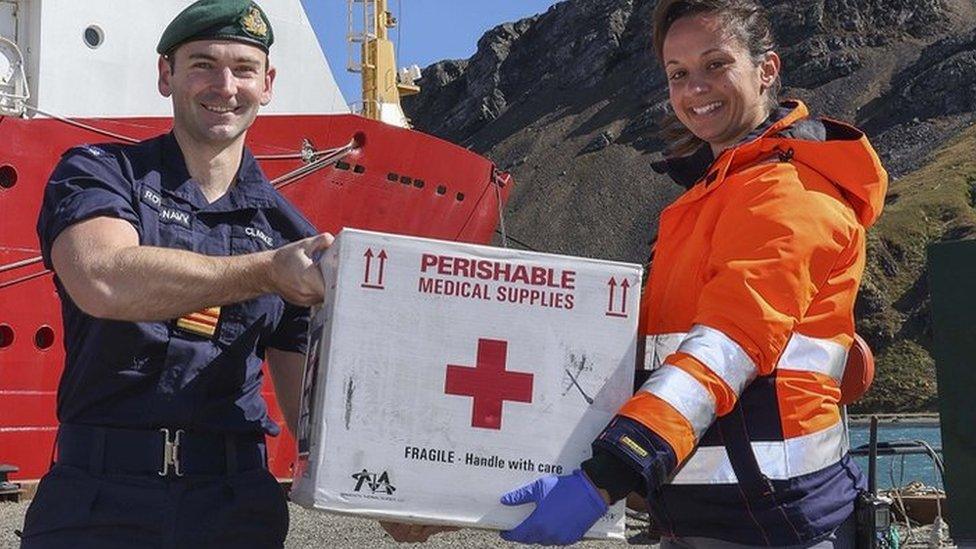Plymouth-based HMS Protector completes mission to Antarctic
- Published
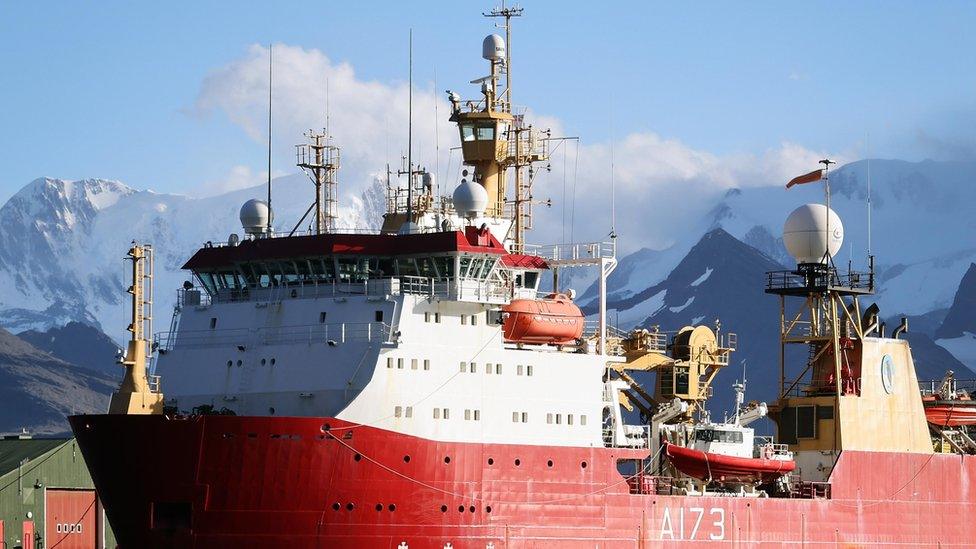
The vessel carried out scientific research and environmental work
A Plymouth-based Royal Navy ship has completed its mission to the Antarctic.
HMS Protector clocked up 7,000 nautical miles during its annual trip to the continent.
The Royal Navy said the vessel, its only icebreaker ship, carried out scientific research and environmental work.
Capt Tom Weaver, the ship's commanding officer, said it observed wildlife and recorded data on numbers and behaviours during its mission.
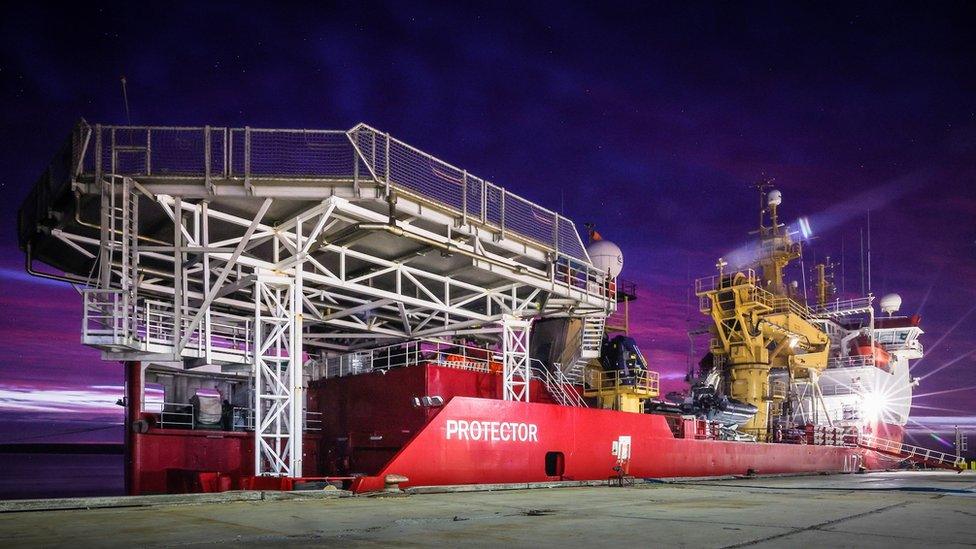
The mission also focused on the effects of climate change on the region
Called Operation Austral, the captain told BBC Radio Devon the mission also focused on the effects of climate change on the region.
"Our primary mission is surveys, so we have a multi-beam echo sounder on board and we have a deployable survey boat that allows us to survey shallow waters," he said.
"Huge areas of Antarctica are still unsurveyed, it is just blank space on the map."
'Stunning place to operate'
Capt Weaver said the information collected on the mission was then sent back to the UK to be turned into navigational charts to improve navigation and safety.
"It is getting busier down there with tourist traffic, so for safety and navigation, we hoover up all of this data," he said.
"It is a stunning place to operate, we are hugely privileged to be surrounded by incredible wildlife, glaciers and icebergs every day.
"But at the same time, you see what the scientists are reporting like glaciers receding rates and icebergs that are carving off from the ice sheets."
The Royal Navy said the ship's latest survey documented 74 fur seals, 26 sei whales, 161 humpback whales, 25 fin whales, 18 killer whales and a reported sighting of an albino whale.
Two penguin scientists also joined HMS Protector and researched five penguin colonies with a population of more than 10,000 each.

Follow BBC Devon on X (formerly Twitter), external, Facebook, external and Instagram, external. Send your story ideas to spotlight@bbc.co.uk, external.
- Published2 February 2024
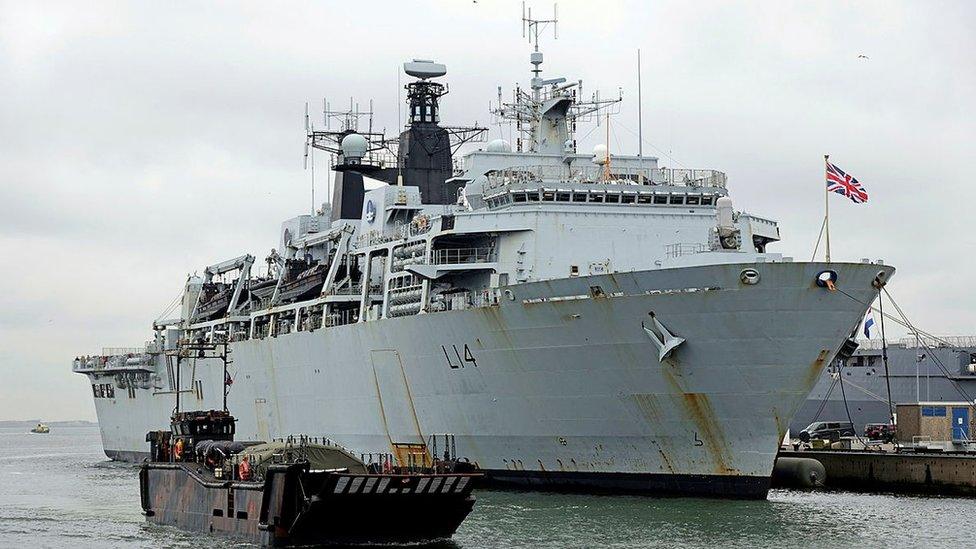
- Published10 February 2022
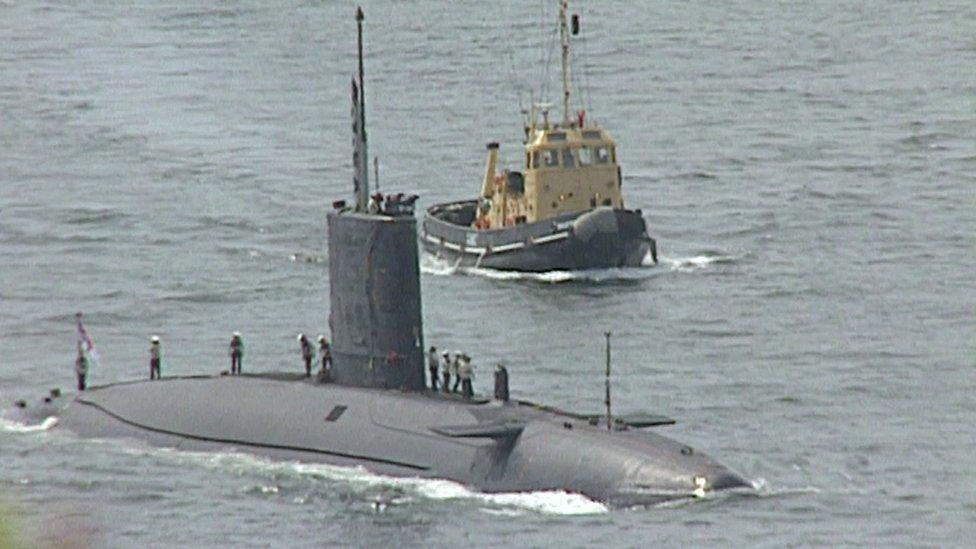
- Published14 December 2021
